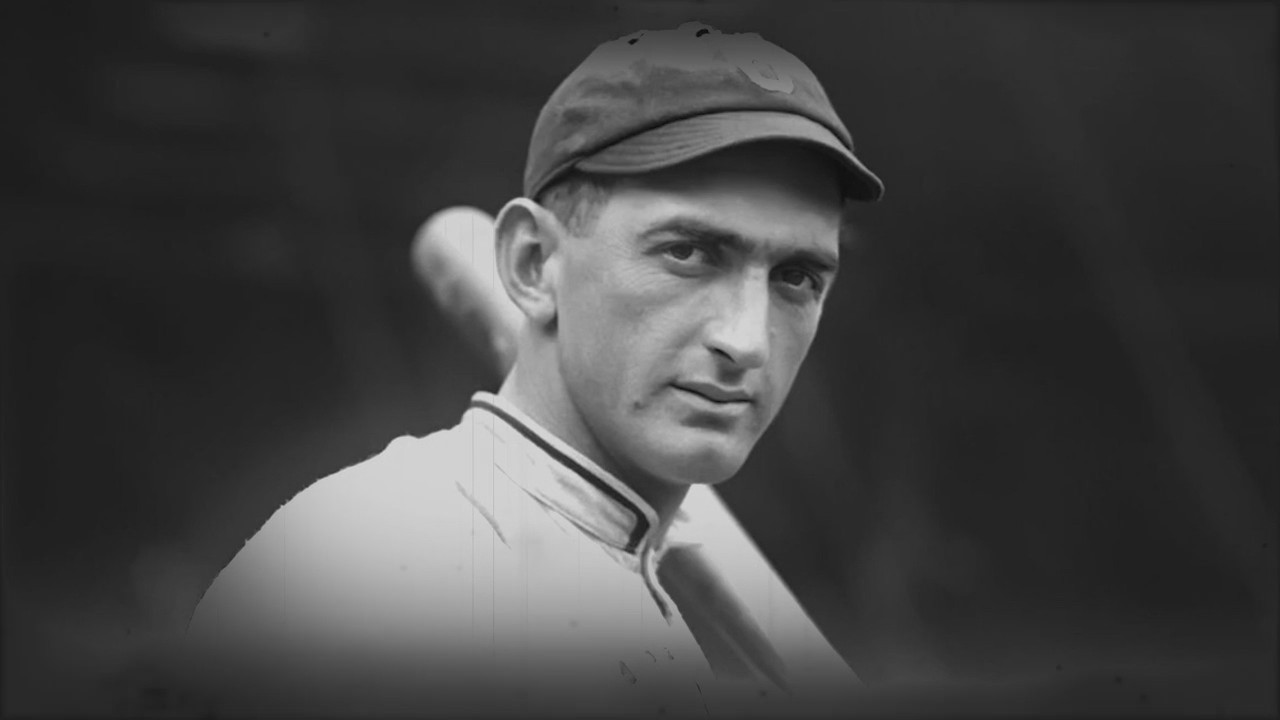New book reveals Shoeless Joe Jackson's involvement in Chicago Black Sox Scandal

New book reveals Shoeless Joe Jacksons involvement in Chicago Black Sox Scandal
A pair of local historians have published a book making public for the first time transcripts from a 1924 trial that sheds new light on a question that has puzzled baseball fans for decades -- did Shoeless Joe Jackson help the Chicago Black Sox throw the 1919 World Series?
CHICAGO - More than 100 years after the biggest scandal in sports history, there is new information being made public about the Chicago Black Sox. And it's coming from beyond the grave of one of the most famous players at the center of that scandal -- Shoeless Joe Jackson.
A pair of local historians have published a book making public for the first time transcripts from a 1924 trial that sheds new light on a question that has puzzled baseball fans for decades -- did Shoeless Joe help throw the 1919 World Series?
"This is a story that has everything. It's drama. It's corruption. It's injustice. Every element is contained in the Black Sox Scandal," said Jacob Pomrenke, a baseball historian.
FOX 32’s Dane Placko met Pomrenke and fellow baseball historian David Fletcher at the plate where it happened, marking the site of Old Comiskey Park at 35th Street and Shields Avenue.
"It's a really great story about old time baseball. But it's really a great Chicago story," Fletcher said.
Most fans know the basics of the Black Sox story - how the 1919 White Sox, considered the best team in baseball, and led by their star outfielder Shoeless Joe Jackson, shocked the sports world losing the World Series to the Cincinnati Reds.
"The rumors about the 1919 World Series fix started before the World Series began. There is some evidence that Charles Comiskey and other baseball officials knew about the fix before a single pitch was thrown," Pomrenke said.
The following year, a Cook County grand jury began an investigation interviewing under oath a number of the White Sox players and professional gamblers suspected of taking part in the scheme. And in September 1920, as the White Sox were chasing another pennant, the grand jury charged eight players with conspiring to throw the series, including Shoeless Joe.
Which led to the famous supposed courthouse encounter between Jackson and a young fan as depicted in the movie "Eight Men Out." But like much of what we think we know about the Black Sox, Pomrenke said that "never happened."
"We actually have film footage of Shoeless Joe leaving the courthouse that day in 1920 and he's flanked by two sheriff's deputies, bailiffs, and there's a huge crowd around him. And there's no little boy stopping him," Pomrenke said.
The case went to trial and a sympathetic Cook County jury acquitted the eight players. But the following day, baseball commissioner Kenesaw Mountain Landis, a stern former federal judge in Chicago, banned all eight from ever again participating in professional baseball.
Jackson, who many consider the greatest natural hitter of all time, had just signed a three-year contract.
"So he wanted his back pay," Fletcher said. "He wanted his money."
Jackson sued White Sox owner Charles Comiskey and in January 1924, a trial was held in Milwaukee--because the White Sox were incorporated in Wisconsin and that leads us to the new information published in Fletcher and Pomrenke’s new book.
"The trial itself was quite a spectacle. It was quite a dramatic trial. It lasted two weeks up in Milwaukee, Wisconsin, and it was Shoeless Joe having to answer questions about what happened in the 1919 World Series," Pomrenke said.
But that trial is long-forgotten in part because the transcripts of all the testimony disappeared, until now. The court records were almost tossed in the 1950's but were saved by a Milwaukee lawyer and remained hidden away until recently.
"Almost nobody on the planet has seen this transcript, and seen Shoeless Joe's and Charles Comiskey's testimony in their own words until now," Pomrenke said.
In the new transcripts, Shoeless Joe flatly denies taking the $5,000 offered by gamblers. But other witnesses, including his wife, tell a different story.
"His wife saw him get the money," Pomrenke said. "It was big denomination bills. She had to deposit it at the local bank, December 1st, 1919. They had the bank teller come. They had the bank receipts for a $5,100 deposit. I mean, they had the goods on him."
The book reprints hundreds of pages of testimony from the key players involved in the fix, testimony the historians say clearly points to Jackson's guilt.
"There are a lot of people who still believe Shoeless Joe had nothing to do with the Black Sox Scandal," Pomrenke said. "And what the research has shown is he really did. He took the money. There's no question about that. Whether he played his best on the field for the White Sox is still up for debate."
Indeed, Jackson hit .375 in the World Series and threw a runner out at home plate. Some believe Jackson didn't understand the conspiracy because he was illiterate, going to work in the South Carolina textile mills at 7 years old.
After the ban, Jackson ran a liquor store in his hometown of Greenville, South Carolina until he died in 1951, maintaining his innocence to the grave.
Today his home is preserved as the Shoeless Joe Jackson Museum and the debate among sports fans continues.
"This is a story that continues to stay relevant into the 21st century. We still have World Series scandals these days. We still have sports betting scandals these days," Pomrenke said.
"It's just gonna go on forever. It's that loss of innocence is a key to why it attracts people. It's cheaters cheating cheaters. And that's the best way to describe it," Fletcher said.

